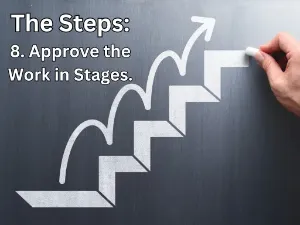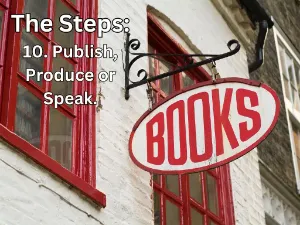Finding a dramedy script writer. Is it dramady or dramedy? It’s dramedy.
By- Michael McKown
You’ve got an idea for a dramedy, and now you need someone to write it. How about we begin with a definition?
In the world of screenwriting, the term dramedy (a blend of drama and comedy) represents a delicate and often complex fusion of two major genres. A dramedy screenplay demands a fine balance between dramatic weight and comedic relief. Both genres have distinct elements that, when combined, form a cohesive and engaging story that resonates on multiple emotional levels.
OK, let’s move on to structure.
Like any good screenplay, a dramedy must adhere to a well-thought-out structure, often following the three-act framework (setup, conflict, and resolution). However, what sets a dramedy apart is how it incorporates both comedic and dramatic elements throughout the acts.
In act one, the screenplay introduces the characters, establishes the world in which the action takes place, and sets up the central conflict. The challenge in this genre is to quickly establish the tone, letting the audience know that they can expect both humor and emotional depth. The comedic moments may emerge from character interactions or situational irony, but the underlying tension of the drama must also begin to unfold.
The second act often leans heavier on the drama. Here, conflicts intensify, stakes are raised, and the characters begin to face emotional, physical or psychological challenges. The comedic elements in this act might function as comic relief, providing a breather amid the tension. However, the comedy must remain character-driven and organic to avoid undercutting the emotional gravity.
The third act sees the culmination of both the dramatic and comedic threads. A satisfying resolution involves solving the central conflict, offering emotional catharsis, and delivering a final note of humor that underscores the theme. The balance between tragedy and comedy in this act can leave the audience with a bittersweet or uplifting aftertaste.
In a successful dramedy, both genres are given similar weight. The audience experiences emotional highs and lows, and the comedic elements feel intertwined with the dramatic arcs rather than an afterthought.
In a dramedy, characters serve as the beating heart of the story. Unlike pure comedy, where characters can be exaggerated or one-dimensional for the sake of humor, or pure drama, where they are often solemn and heavy-handed, dramedy characters are grounded in reality. They are multidimensional, possessing flaws, quirks, and emotional depth.
The protagonist of a dramedy often experiences an internal conflict, typically related to relationships, self-discovery, or dealing with past trauma. The character’s personal journey provides the dramatic core of the screenplay. However, the humor often comes from how this character navigates difficult situations. They may cope through sarcasm, wit, or awkwardness, all of which humanize them and make them relatable.
The supporting characters in a dramedy should add layers to the central conflict. They often serve as comedic foils, bringing different perspectives and energies to the screenplay. Some might be comic relief while others bring further emotional depth, creating a diverse cast that complements the protagonist’s journey. For instance, a protagonist’s best friend might be the one who offers levity in serious situations, while a family member might intensify the drama.

At its heart, a dramedy screenplay examines the full spectrum of human experience—how laughter and pain often coexist. It reflects life’s unpredictability, where moments of joy can be tinged with sadness, and hardship can lead to unexpected humor.
And now, finding a dramedy script writer.
That’s the general structure of a dramedy script but this article isn’t an essay on how to write one. It’s about how to find a dramedy screenwriter who can turn your movie or TV pilot idea into a polished script that stands a good chance of being made.
Clearly, the writer must be able to write both genres, and I have writers with those qualifications under contract. There are a lot of script writers that you can contact directly or find through freelancer websites. The difference between those people and my people is two-fold. First, my writers are the survivors of my screening process. Secondly, the one in overall charge of your project and the writers is me, who co-founded the company in 2002.
My writers understand that they must be fully committed to delivering to you a professional and well-written script, that meets industry requirements, on time and on budget. If a client has some sort of unfortunate problem with a writer, I intercede to get it handled. Because they are the survivors of my screening process, such occurrences are rare.
The risk of having a problematical screenwriter goes up when there is little to no recourse to poor writing or unreliable client service, or even theft. I’ve heard stories of clients who sent money and never heard from that writer again. Were I a client, I would prefer to deal with someone who can do the job, and who has someone above that writer to assure performance. It’s safer.
We are ghostwriters, meaning we don’t get author credit unless you want to give credit. The work is done in your name, and when payments have been completed, it belongs to you.
I run the business and I treasure my contract writers. You can find out more about Ghostwriters Central, Inc., by doing a Google search for the business name, or the domain, which is: ghostwords.com. Victims of scams post their experiences on the internet. If there’s any negative comment, it will be easy to find. I also suggest you scan our Client Comments page. It’s prominently featured in the top menu.
If it’s time to start your dramedy script, then it’s time to call us. Thank you for reading.











